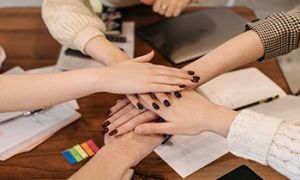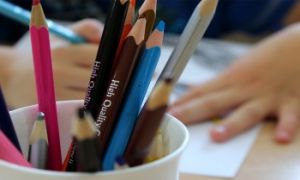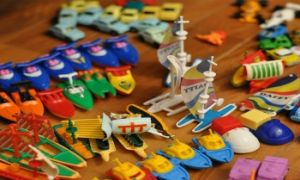Recycling is an important concept that teaches children to care for the environment. It encourages children to be responsible and show a growing appreciating for Earth.
It is important to identify the three R’s so that children can distinguish three key ways to reduce their impact on the environment:
Reduce: - this means cutting back on the amount of waste used in everyday life. For example, reduce waste by teaching children to use canvas bags at the grocery store instead of plastic bags.
Reuse - reuse an existing item in your service in order to minimize waste. For example, reuse paper for drawing, reuse recyclable materials for craft etc.
Recycle - means when an object can be shredded, melted, or processed in order to create new raw materials. For example, an aluminium can is used to create more cans while paper and cardboard can be recycled in order to generate more paper products.
Teaching Children About Recycling
It's important to support children to be active learners within the environment to ensure they understand why we need to recycle.
Talking about recycling also provides the opportunity for children to learn about where products come from. How they are made. And how they can be reused.
Here are some simple experiences, to start with:
- Composting - Show children that food waste can be recycled too. Create a compost bin where children’s meal leftovers can be deposited. Make it part of your daily routine to empty scraps into the compost bin and periodically transfer its contents into an outdoor composter. Use this opportunity to teach children about the composting process and how food can be recycled into nutrient-rich soil.
- Create a Recycling Centre - Using plastic recycling bins or cardboard boxes, create a recycling centre within your room. Get preschoolers involved in labelling, decorating and setting up the recycling bins in the room. As you label each box with plastic, paper, metal and cardboard, explain the types of items that might go in each one. Invite children to start sorting recyclables and continue to sort the items they use every day.
- Reuse Recycled Materials for Art and Craft Projects - Setup a shelf where recycled materials can be stored. Children can choose what they want to use and create with.
This is also a great opportunity to discuss other ways we can care for the environment by reducing what we use, reusing what we can, and recycling.
Getting Families Involved
Families can also get involved in your services recycling and reuse efforts.
Setup plastic bins for families to drop off their preloved goods such as kids books, children's clothes and toys. You can collect these items and host a book, clothes or toy exchange with the families at your service or you can contact local organisations where these preloved goods can be donated.
This can be an ongoing initiative that your service can be involved in.
Families can also be encouraged to bring in recycled materials that can be used for art projects.
Sustainability Education
Encouraging children to recycle is a way of teaching them about sustainability. Learning the importance of being sustainable shows them that the environment is important.
Including composting, worm farms, gardening and providing a natural environment successfully engages children. However, these are only one of many ways we can teach sustainable development. As educators, we need to include education about and for the environment.
The following article Sustainability Practices in Childcare will provide you with strategies on promoting sustainable education for educators and children and ideas on incorporating sustainable practices within the environment.
Recycling is an excellent way to teach children about environmental awareness and the importance of respecting their environment.
References:
Recycling Activities For Preschoolers, Hi Mama
Recycling Fir Kids, Scout Recycling
Recycling, Pre K Pages


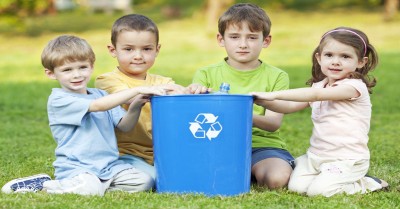

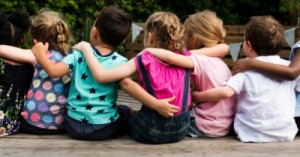


 Open ended questions cannot be responded to with one word answers such as yes or no. These types of questions enables a child to provide
Open ended questions cannot be responded to with one word answers such as yes or no. These types of questions enables a child to provide During your child’s preschool years, an important milestone begins to emerge. This is the development of pre-writing skills. Pre-writing skills are used to encourage, develop
During your child’s preschool years, an important milestone begins to emerge. This is the development of pre-writing skills. Pre-writing skills are used to encourage, develop Open ended materials enables children to play freely. They are objects that have no rules to follow, use or function. Raw materials that can be
Open ended materials enables children to play freely. They are objects that have no rules to follow, use or function. Raw materials that can be An Acknowledgment of the Country is a way of showing respect for the Traditional Owners and can be given by both non-Indigenous people and Aboriginal
An Acknowledgment of the Country is a way of showing respect for the Traditional Owners and can be given by both non-Indigenous people and Aboriginal Language plays an important role in a child’s development. It enables a child to communicate effectively with their family, learn at school, socialize with friends,
Language plays an important role in a child’s development. It enables a child to communicate effectively with their family, learn at school, socialize with friends, Like adults, children have to deal with their own stress in life. Moving house, starting a new school, preparing for a new sibling - these are
Like adults, children have to deal with their own stress in life. Moving house, starting a new school, preparing for a new sibling - these are Playdough is such a versatile material. It provides numerous benefits to children as they manipulate it, it is safe and soothing and provides children with
Playdough is such a versatile material. It provides numerous benefits to children as they manipulate it, it is safe and soothing and provides children with Teaching children about sustainability enables them to appreciate and respect the natural environment. Early childhood services can provide meaningful hand on learning experiences in order
Teaching children about sustainability enables them to appreciate and respect the natural environment. Early childhood services can provide meaningful hand on learning experiences in order Recycling is an important concept that teaches children to care for the environment. It encourages children to be responsible and show a growing appreciating for
Recycling is an important concept that teaches children to care for the environment. It encourages children to be responsible and show a growing appreciating for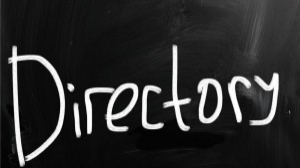 Incursions provide children with the opportunity to explore meaningful learning experiences in the comfort of their early childhood service. The following provides a directory of
Incursions provide children with the opportunity to explore meaningful learning experiences in the comfort of their early childhood service. The following provides a directory of